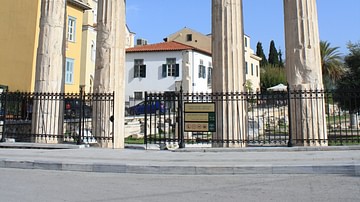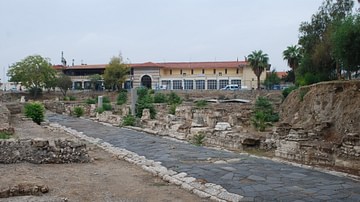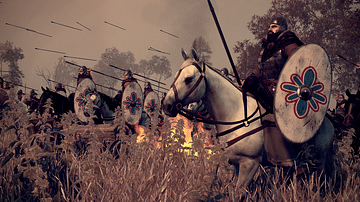Search
Search Results

Article
Roman Expeditions in Sub-Saharan Africa
Sub-Saharan Africa was explored by Roman expeditions between 19 BCE - 90 CE, most likely in an effort to locate the sources of valuable trade goods and establish routes to bring them to the seaports on the coast of North Africa, thereby minimizing...

Article
Hellenistic & Roman Agora of Athens
Pericles’ agora of Athens flourished under Macedonian control. After Macedon was defeated by Rome, the Romans added to the district even before Greece was taken as a province and more so afterwards. The Roman version of the agora continued...

Definition
Tarsus
Tarsus was a city in ancient Cilicia located in the modern-day province of Mersin, Turkey. It is one of the oldest continually inhabited urban centers in the world, dating back to the Neolithic Period. It was built close by the Cydnus River...

Article
Roman Women in Business
Roman women faced legal, ideological, and cultural limitations in several areas of their lives; deep-rooted traditions regarding the role of women in the Roman world resulted in pre-conceived views which saw women characterised by weakness...

Article
The Ancient Celtic Pantheon
The ancient Celtic pantheon consisted of over 400 gods and goddesses who represented everything from rivers to warfare. With perhaps the exception of Lugh, the Celtic gods were not universally worshipped across Iron Age Europe but were very...

Definition
Arminius
The Cherusci noble Arminius (c. 18 BCE - 19 CE) led the resistance to Roman conquest of Germania during the years 9-16 CE. Likely raised as a child hostage in Rome, Arminius gained command of a German auxiliary cohort in the Roman army. Posted...

Article
Family Planning in Greco-Roman Antiquity
Family planning was a topic of vital importance in the ancient Mediterranean. Some of the earliest medical literature from ancient Greece and Rome deals with fertility and reproductive health. Among the numerous treatments and procedures...

Definition
Battle of Adrianople
The Battle of Adrianople on August 9, 378 CE ranks among the worst military defeats in all of Roman history. Its estimated losses of over 10,000 are comparable to Roman defeats at Cannae (216 BCE) and Carrhae (53 BCE). The battle pitted the...

Definition
Roman Senate
The Roman Senate functioned as an advisory body to Rome's magistrates and was composed of the city's most experienced public servants and society's elite. Its decisions carried great weight, even if these were not always converted into laws...

Collection
Ancient Roman Warfare
With a huge reserve of resources in men and equipment and a culture geared for warfare, the Romans were relentless in expanding their borders and putting their neighbours to the sword. The Roman army, with its well-trained, well-equipped...